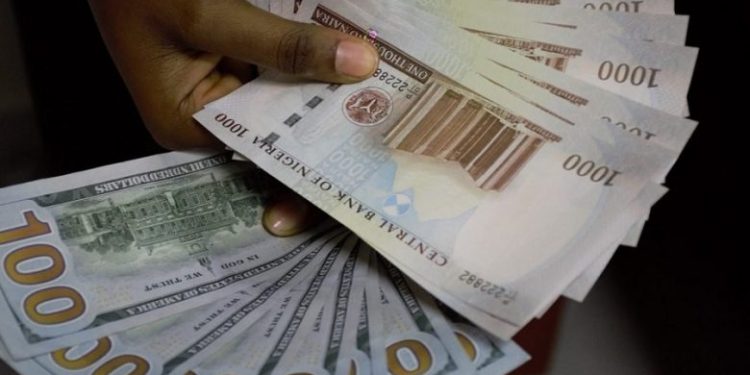The Nigerian Naira experienced a marginal decline against the U.S. dollar on Tuesday, December 12, 2023, with an intraday high recorded at N1186/$1. This followed a significant recovery on Monday, December 11, when the Naira regained ground against the dollar at the official market after reaching a historic low on Friday, December 8, 2023.
According to data from the Nigerian Autonomous Foreign Exchange Market (NAFEM), the domestic currency depreciated by 0.09% to close at N865.03 to a dollar at the end of business on Thursday. This represents a 0.74 kobo loss or a 0.09% decline compared to the N864.29 it closed at on Monday.
The intraday trading saw a high of N1186/$1 and a low of N720.00/$1, indicating a significant spread of N466/$1. The forex turnover at the close of trading was $99.09 million, reflecting a 25.19% decrease compared to the previous day.
At the parallel forex market, the Naira closed with a 1.24% drop, with the exchange rate quoted at N1210/$1 compared to N1195/$1 the previous day. Peer-to-peer traders quoted around N1216.10/$1.
Expert Reactions and Calls for Action
Financial experts have expressed concern over the continued decline of the Naira in both the official Nigerian Foreign Exchange Market (NAFEM) and the parallel market. They have urged the Central Bank of Nigeria (CBN) to take decisive steps to address the situation.
One suggestion comes from Dr. Biodun Adedipe, the founder and chief consultant of B. Adedipe Associates Limited (BAA Consult), who recommends the de-dollarization of the economy. Adedipe proposes that the CBN should declare any local transactions in U.S. dollars illegal, including the sale of assets, rent/leases, school fees, and medical bills.
He further suggests that the CBN should transparently engage with participating banks at the I&E Window and stop government agencies from charging local operators and entities in U.S. dollars, particularly in the maritime sector. Adedipe emphasizes the need to conduct the sale of crude oil to local refineries in Naira rather than dollars.
As experts and market participants continue to grapple with the challenges facing the Naira, calls for comprehensive economic reforms and a reevaluation of currency policies are gaining momentum. The fate of the Naira remains a critical issue, with stakeholders closely watching for potential interventions from regulatory authorities.










